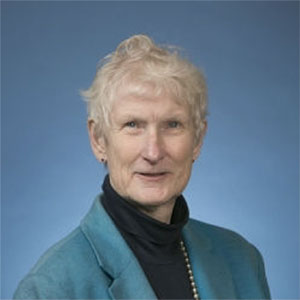 Linda Bourque
Linda Bourque
Principled, compassionate, and feisty are among a few of the words that colleagues used to describe Linda Bourque, Professor Emerita at the University of California, Los Angeles Fielding School of Public Health. Bourque passed away March 20, 2019. She was 77 years old.
Bourque made tremendous contributions in and beyond the hazards and disaster field during a career that spanned more than 50 years. Trained as a sociologist with an orientation toward interdisciplinary scholarship, she received her PhD from Duke University in 1968 before establishing her professional home in the public health arena. She joined UCLA in 1972 and was named co-head of the Division of Behavioral Sciences and Health Education only a year later.
She continued to take on leadership roles throughout her career, heading the Division of Population and Family Health, assuming the role of Vice Chair in the Department of Community Health Sciences, and serving as Associate Director of the Southern California Injury Prevention Research Center. In 1997, Bourque helped launch the Center for Public Health and Disasters—among the first centers of its kind in the nation—to promote interdisciplinary efforts to reduce the health impacts of disasters on domestic and international scales. She served as associate director of the center for 14 years.
Bourque’s research spanned a wide range of disaster-related topics, from psychological distress associated with earthquakes to emergency preparedness in schools to public responses to terrorism. Although her far-ranging interests were buoyed by a strong enthusiasm for research methodology, she was motivated by more than intellectual curiosity. She was committed to ensuring that the knowledge she generated helped inform practice and integrated real-world examples into her teaching. She made it a point to drive home the timeliness and relevance of seemingly abstract methodological issues and pushed her students to do the same.
The quality of her own work and that of her students was particularly important to Bourque. She pushed her students toward excellence, at times relishing in their chagrin at her tough grading. Yet she also went above and beyond to prepare them for even the toughest methodological challenges and help them develop confidence in their abilities.
“Linda held herself and everyone else to the highest standards regarding empirical research,” said Dennis Mileti, a former director of the Natural Hazards Center who worked closely with Bourque. “Her standards were never compromised and she taught survey methods and statistical analysis to her students with rigor.”
While Bourque’s standards might have been unyielding, she herself was known as a giving person who was deeply committed to her colleagues.
“I’m so thankful for Linda; I am a better professor and a better colleague because of her, UCLA professor Mike Prelip stated in a recent tribute for Bourque. “The moment I walked in the door of her office for the first time, she was completely supportive of me and that support was unwavering. Her memory will live on in the many students she mentored, trained and supported in countless ways.”
Students have similarly cited Professor Bourque’s unwavering encouragement as the foundation of their success. She was passionate about their work and went to great lengths to support their professional development and network them with one another.
“She gave more than 100 percent to her students, and she expected more,” recalled Michele Wood, a former student and chair of the Department of Public Health at California State University Fullerton. “She was so proud of her students, and always celebrated their accomplishments.”
The UCLA Fielding school plans to hold a memorial service for Professor Bourque in fall 2019; details will be released later.
Nnenia Campbell is executive director of the Bill Anderson Fund and a research associate with the Natural Hazards Center at the University of Colorado Boulder. Campbell’s research centers on the intersections between disaster vulnerability and resilience among older adults, racial and ethnic minorities, and other marginalized communities, as well as the roles that community-based organizations play in disaster preparedness, response, and recovery. Her work translates empirical research on the social aspects of disasters into tools and information products for practitioners and decision-makers, with an emphasis on inclusive engagement.